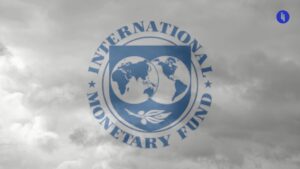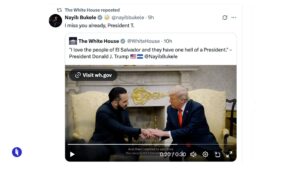As you read this, US Secretary of State Antony Blinken was supposed to be touching down for his ninth diplomatic blitz in the Middle East since October 7th — the idea was to urge allies, partners, and anyone else who’ll listen to avoid a full regional conflict, 10 months into the Israel-Hamas war.
But then abruptly on Tuesday afternoon, word emerged that the trip was off. It wasn’t entirely surprising, as the details were always elusive — reporters never got Blinken’s schedule, and the White House had just warned on Monday that US intelligence, matching an Israeli assessment, now assesses Iran and/or its proxies could “attack Israel as early as this week”.
Anyway, Blinken’s aides unpacked their bags, cleared his schedule, and the Secretary has stayed put in Washington…for now.
Stay on top of your world from inside your inbox.
Subscribe for free today and receive way much more insights.
Trusted by 123,000+ subscribers
No spam. No noise. Unsubscribe any time.
But the Middle East is on edge. Again. Or still. Maybe both?
For a quick refresh, in just the last two weeks…
- Iran inaugurated its new ‘reformist’ president
- One of his guests was Hamas chief Ismail Haniyeh, who Israel then assassinated in a supposedly secure Tehran compound hours later
- A humiliated Iran has been vowing revenge ever since
- And it’s been dismissing Western calls to show restraint.
But… Iran’s mission to the UN added a plot twist last Thursday, declaring its first priority is “a durable Gaza ceasefire”, while avenging Haniyeh’s assassination was a mere #2. Quite the to-do list. Btw, a quick side-bar:
- Iran sometimes back-channels messages via its UN mission, though its UN diplomats sometimes also just say whatever they think sounds good.
But then… yesterday (Tuesday), Joe Biden gave some credence to the possibility of Iran holding fire for now, answering tarmac reporters who asked if he expected Iran to hit pause if there’s a deal in Gaza: “That is my expectation.“
So it’s now been two weeks since Haniyeh’s assassination on July 31, and while spooks and reporters have poured over the slightest shift of a tea trolley on each Iranian base, it’s still been business as usual – more rocket attacks from Iran’s proxies in Gaza (Hamas) and Lebanon (Hezbollah), plus continued Israeli strikes too.
It’s also meant that for newsrooms everywhere, not to mention our exclusive Intrigue WhatsApp community [free to join for anyone who refers a few friends to Intrigue using your unique link down below], we’ve had multiple days of high-alert, only to then pivot to brief you on (say) Taylor Swift instead. It’s a lot.
But has anything really changed?
While Blinken has postponed his trip, the US has still sent top Middle East adviser Brett McGurk to Cairo and senior envoy Amos Hochstein to Lebanon this week, while CIA director Bill Burns is still scheduled to visit Qatar tomorrow (Thursday) for the latest round of negotiations.
INTRIGUE’S TAKE
So then, what (if anything) does Blinken’s trip postponement really mean?
The thinking behind sending someone as senior as Blinken is a little more nuanced than it might seem:
- Sometimes you send a minister because the conditions are right, and VIP engagement can help get a deal over (or at least nearer) the line
- Sometimes there’s little prospect of VIP engagement making any real difference, but there’s still value in turning up as a way to signal to regional and domestic constituencies (“at least we’re trying”), and
- Sometimes cancelling a trip can send a signal too, particularly when it’s alongside new US naval deployments (ie, “we’re serious”)
Blinken’s itinerary has reflected each of these signals at times, and diplomats everywhere will now be trying to parse this latest signal from the noise.
But the US could also be signalling frustration with Israeli leader Benjamin Netanyahu, given his own fluctuating approach to negotiations: Blinken’s pause comes just hours after the second joint US call for a Gaza deal this week – the first was with regional partners, the second was with Europe.
Both texts make blunt references to “all parties” – but when one of those parties is a listed terrorist organisation with key leaders either dead or in hiding, the message might sound a little louder for the other party: Israel.
Also worth noting:
- The US confirmed approval for a new $20B weapons sale to Israel yesterday (Tuesday).
- UK Prime Minister Keir Starmer spoke on the phone with Iranian President Pezeshkian on Monday, emphasising that “war was not in anyone’s interests.”
- Iran is still reportedly seeking to avenge the US assassination of Qasem Soleimani from back in 2020.








